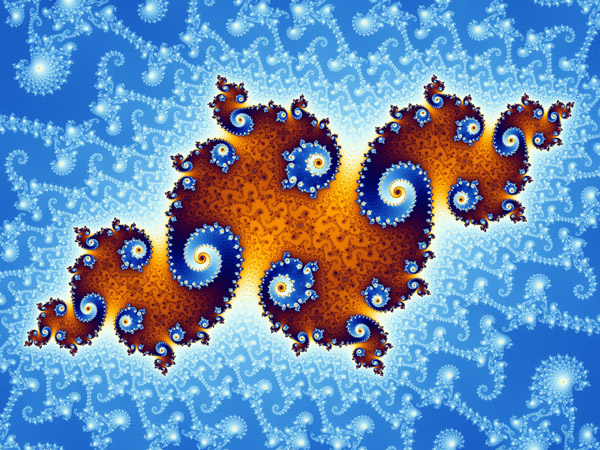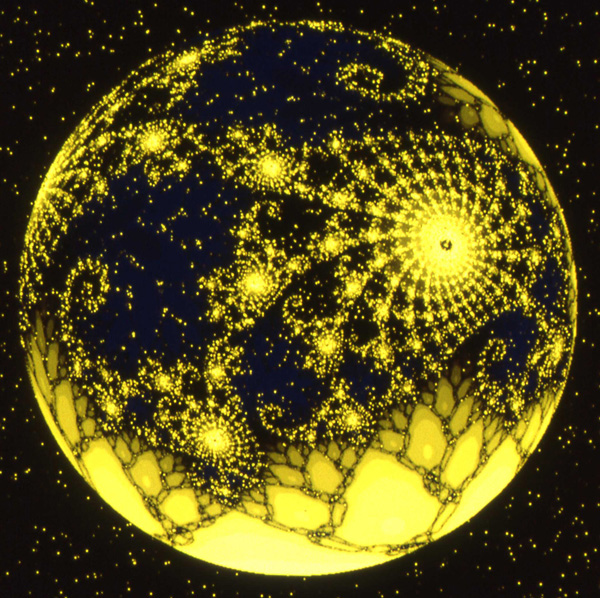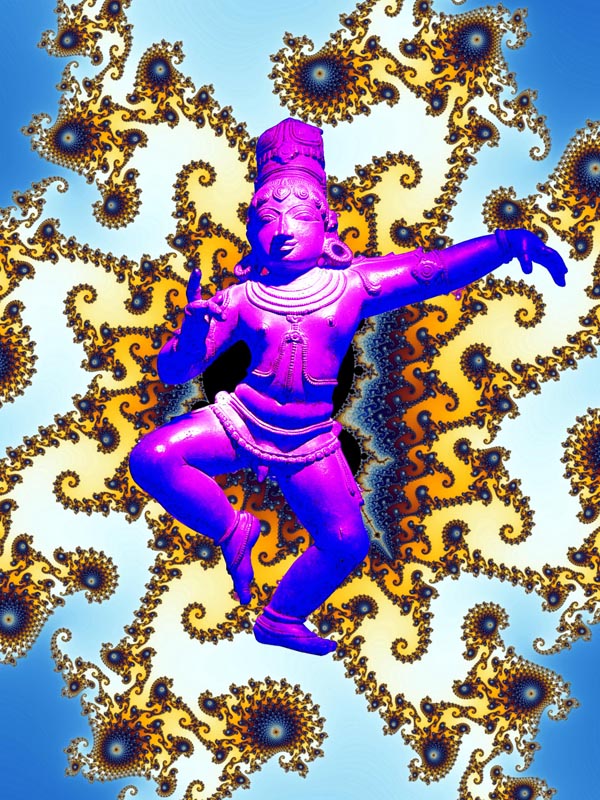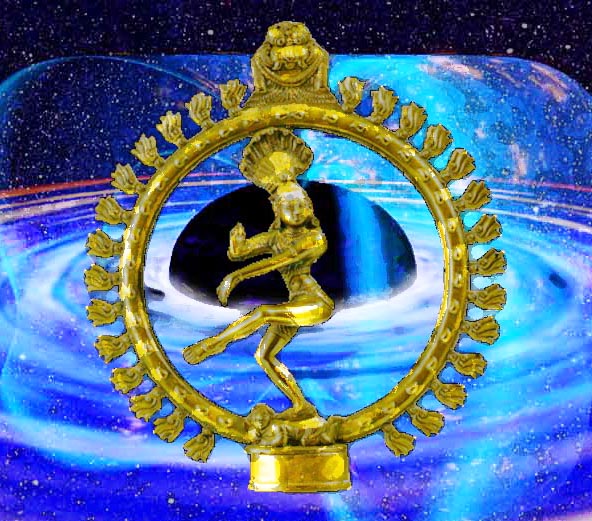|
|||||||||||||
|
to Finding Meaning in Your Sense of Mortality By Punkerslut
The False Approach to Meaning
If meaning exists, it is because we create it. If we value something, it is because we choose to value it. A person might use a coffee mug to drink and a holy chalice to worship, but in another culture or era, the situation could very well be the opposite. It is true, similarly, with ideals, culture, and thought. While we are given an enormous amount of preconceived ideas from our parents, we still have the decision to reject or accept their morals. What is truly meaningful can only be decided by the individual. This is especially true since the concept of meaning does not exist outside of the individual's mind. There are some who try to find meaning in scripture, temples, and systems of gods or "supernatural forces." This is not a rational approach, since it seeks meaning by faith and not by reason; it is a false way of obtaining purpose. Faith is the method of "believing even with absence of evidence, or even in contradiction to it." This does not lead to truth in chemistry, physics, mathematics, history, sociology, psychology, or any other field of human learning. Faith is used in religion, because there is no other way to confirm things that cannot be confirmed; there is no other way to prove what cannot be demonstrated to be true or false. It is a false way of reaching for truth, and for those wanting real meaning, there can be no appeal to religion. Even if a religion were to be accepted, whether by faith or reason or a combination, what would that matter to our search for meaning? Very early in humanity, we discovered that nature reproduces itself -- that trees will replant themselves, that animals will reproduce their genetic code into new generations. These things, as creators, struck us as divine and religious. This lasted, until the development of science, and now plants only have as much meaning as we decide to give them. If we were to discover that the universe was created by a god, would that really give us meaning? It is more likely that whatever meaning we tried to interpret would be based on our ignorance of what was really happening in the universe; we would be interpreting a false meaning. If there is a god, and this god gave an order or a command, what would it matter? Why would it have meaning or purpose to begin with? Societies are the creators of men and women, but every thinking person has a disagreement with society. Parents are the creators of individuals, but even the most obedient of youth disagrees about something with their mother and father. Consider that god ordered that the molecules separate into air, water, fire, and earth, instead of varying numbers of atoms, and this did not result. Should we believe in it, as though it were a truth, even though god's demand runs contrary to truth? This is not typically ever considered as a problem by religionists; no matter the differences or similarities of religions or religious sects, every religious follower seems to believe in a god who thinks the exact same as they do. Examining the supernatural entities that a person claims to guide their life will tell you more about the person than anything else. How is it possible that god's knowledge or commands could be imperfect? If there were a command delivered by god that we did happen to accept, it would have to be based on the facts of the natural universe. It would not be truth, because someone claimed it to be truth; it would only be truth because the laws of nature confirm it. If god ordained that rape was moral, would this make it a moral act? Would we find meaning by being obedient, by ignoring the cries of pain, by turning a blind eye to those who beg for help and mercy? We would have to lose all sense of goodness and justice, and ultimately, meaning, to admit to such a proposition. Rather than giving us purpose, a god who commands such miserable acts detracts from our meaning. This is not such a fantastic hypothesis, either. The god of the Old Testament, which has influence on Christianity, Judaism, and Islam, ordered the rape of 32,000 children in chapter 31 of the book of Numbers. For us to to find the truth about why we are living, we cannot turn to the skies, looking for imaginary beings with fantastic powers of force and knowledge; we must look to ourselves -- to our own existence.
And Life Must End
Mortality: everything that lives is limited, and eventually must come to an end. This is a lesson we have learned from observing all that has ever lived -- from understanding the mechanisms that can encourage living or dying in any organism. If we are going to make a meaning for ourselves, it has to account for this fact: it has to take into its understanding and acceptance our mortality. Religions have tried to give meaning, and in this, they have no foundation or reasoning. One can only believe the meaning provided by gods and goddesses by faith -- believing without evidence. And similarly, when religion tries to provide immortality, it is wholly accepted by the same audience. There is no mechanism that demonstrates how life can continue after death; at least, there is no proof of conscious life after death. The molecules making up the body will be recycled by the environment, making up new life forms; but after death, an individual will never reach another state where they exist as though they were alive. Whatever sense of meaning you develop, it has to directly relate to your existence right here, right now, as you live through it. It cannot be based on folktales and legends of an afterlife -- on the myth of the soul, immortality, and heaven. Our meaning and our interpretation of it must be based on how and why we are living. We must be aware that we will only be able to have meaning while we breathing; we will only be able to interpret our purpose, and make it an active force in the world, while our veins are pumping blood. As conscious life forms, there will be no other form of existence for us. This is where we have to decide the depth and width of our meaning. There is every reason for a human being, or any living creature, to want immortality. This is especially so in our human civilization, where the youth are taught by trusted members of the community that heaven awaits them. Such people, in seeking meaning, always try to define it within the terms of their immortality. That is to say, they always try to define it within the concepts that they believe to be the most absolute and definite. The creator of the universe, and some conceived plan of unlimited happiness, typically provide the basis of meaning to the religious follower. For those who want the truth, for those who want real meaning, we must look to the world, and our experience within it. The future, and the past, are concerned only as much as they define our present situation. There is no 'eternal future' of heaven, as there was no 'eternal being' before our coming into existence; or, at the least, we have no reason or evidence to believe in either of these hypotheses. For us to have real meaning, it must come from within our lifetimes on this planet. In making our decision of our purpose, it must built to relate to us as long as we are living, and to have no other intention. What we feel, see, taste, smell, and hear -- those are the only things that our real. Our life in this universe is all that we will ever know, experience, or feel. We must carry a sense of mortality with us, when we are deciding what we are going to attach value to. We must know that whatever we make of ourselves and however we relate to our experience, it is only for the number of years we live before dying.
What is 'the World'?
When writers and public speakers talk of "the world," what exactly do they mean? They are not referring to the tons of dirt, minerals, and magma that makes up the geological structure of the planet; they are referring to a globally-connected community. It is a preconceived idea about how we value the whole of our experience of this life. In asking what is our purpose here, there are many ideas with suggestions that have their faults, like religion and immortality. When searching for something that is absolute and relates to us individually, the task is harder than disproving a suggested solution. The only thing that immediately comes to mind is that the only other beings searching for the same type of meaning are those who are alive and conscious like us. The only other thing in the universe that can understand the concept of meaning, value, and purpose, in a personal sense, are other conscious beings. These other conscious beings include animal life, whether human or non-human animal, whether mammalian or reptilian, whether from this planet or fomenting somewhere thousands of lightyears away. We have been seeking for something that we can base our morality and sense of meaning upon. Rather than being something far and distant, it is something that exists within us; since consciousness is necessary to the concept of a meaningful life, there can be no morality that is not based on conscious life. Some may doubt the connection I am making here. Conscious life is the only thing in the universe capable of considering value and purpose of existence; therefore, any ethical or philosophical system would have to be based on the value of conscious existence. If a moral system is based on real and absolute principles, then it must be based on conscious life. We can take the logical contrapositive of this statement: if a philosophical system is not based on conscious life, then it cannot be based on real and absolute principles. This must be true, since the only real and absolute principles of moral and philosophical consideration are conscious, living beings. This is based on observation, since nothing else within our universe has the ability to consider ethical existence. This does not yet explain the terms of this connection. Real morality is based on life that is capable of suffering and joy, want and pleasure. But based on it how? What is the nature of this relationship? How are distant conscious entities related through these observations of an empirical moral system? At first, we ought to examine what relationships that every conscious being would have naturally. The most obvious of these relationships is our connection to the physical world. We do possess the inner abilities of happiness, sadness, hope, misery, longing, and fear; but these are things determined by how we relate to the environment we live in. Our emotions are determined by the reaction of our body's senses to the inherent passions of the universe's motion, otherwise known as the laws of nature. The relationship we have with the world is one that can be either painful or enjoyable. It is the strongest influence in determining the inner qualities of our consciousness: our trust, hope, love, peace, and want. If we go a little further in our investigation, we find other conscious beings within our environment. We find that we are not the only one with "inner qualities" that can be effected by the laws of nature. Our experience of the world, rather than being based solely on unconscious laws of nature, is largely produced by the thinking actions of other self-aware beings. In studying the universe, we first know the laws of nature, before we uncover the presence of other conscious beings. This methodology might seem a bit unusual. In examining the universe to find natural laws, and then extending the investigation further to find other conscious, we take almost a reverse direction. The first thing we experience in this world is conscious life -- it occurs at that moment of early existence when consciousness awakens in the organism. For almost all creatures, the most profound and meaningful connection they begin with is toward their parents; and, in civilized species, it extends towards the whole community and extended family. So, the initial course of our thought is first to connect to a conscious being, before we are even capable of grasping the concept of a universe full of natural laws. The more civilized and social a species, the more their interaction is solely with consciousness or the products of consciousness. While we may live in buildings and enjoy delicious food, we never really consider that these are the products of centuries of thought and inquiry. Those things which really touch us deeply, such as literature, art, and music, requires intensive, conscious thinking. And so, while we often think of the environment we live in as 'natural,' it is only so because consciousness is natural. The world we experience is almost completely human-made, and it has been this way since humanity began farming and forming landed communities. We know the relationship that we possess with the environment, which necessarily describes the relationship among all conscious beings -- since the decisions and behaviors of others in society make up the core of our experience in life. How does this reflect on the connection between all conscious life? The one immediate and clear relationship between all thinking organisms is that we share a common area of existence. Each of us, capable of experiencing the environment, possess a common connection based on this bond. The only other being that could give meaning, purpose, or morality to our actions are those can think, feel, and suffer like us. They are the only ones who can sympathize and provide good will towards our own self-interest. While we may find happiness by our actions within the natural laws, we can also find it by the altruism and love of others. The behavior of a conscious being doing a good deed is the only way that any individual can experience good; as there can be no good, except that which is rendered to those who can appreciate it -- specifically, conscious and thinking creatures. Mutual, reciprocal, and fair coexistence. This the natural morality of those who are aware and capable of thought. This principle is naturally based on the fact that we are all existing within the same universe, all equally subject to the same laws of nature, the same dislike of suffering and the same hope of happiness. Our definitions of morality and ethics are set by what necessarily uplifts or depresses the conditions of thinking organisms. Just as conscious beings are the only other thing capable of suffering or joy, they are likewise, the only things capable of valuing acts that increase happiness, and devaluing acts that decrease it. Another organism, which hates suffering like me, and understands that I know this, can be the only thing that attaches a moral value against that which causes suffering -- against that which attacks the happiness of every thinking being. We understand suffering, and loathe it for ourselves; and we know that others are capable of it, similarly despising it. What is it that brings us from these facts to the moral valuing of all conscious life? In suffering, we find our dislike of it because it unnecessarily puts our consciousness through pain; and we automatically attach a sense of badness, or even immorality, within things that make us suffer. In witnessing another conscious being suffer, as every thinking being does, this sense of morality becomes active, producing sympathy. We know the badness in making another go through pain, only because we have experienced it; only because we have made the same connection to the world, and found injustice in conscious life forced through misery. A true morality and meaning, then, is based on the mutual experience of all conscious life through our world. A good morality is like the sex experience. By ourselves, and without consideration of others, there is only self-interest and our own ego -- masturbation. But once we have a partner, and we act in coordination and through a shared passion, the experience becomes exponentially greater, in terms of meaning, value, and enjoyment. Alone, we are acting for self-gratification, but with others, we can obtain far more from the experience -- relief, communion, affection, love. This is most especially the case with the sex act, where each one's actions and reactions serve to accelerate the pleasures of everyone involved. It is a perfect example in explaining the natural position between all conscious life, with our ability to help or hurt, and the whole purpose being defined by the participants.
Find and Cherish Meaning Because it is the Truth
All conscious beings, sharing the same experience and knowing the same suffering, have attached a general badness to it, and a general goodness towards all things that tend towards happiness. Real, concrete, absolute meaning, for all the evidence and logic it is based on, is still a very abstract concept. It is certainly not the ten commandments, which ordered what was good or bad. Rather, like any scientific theory, its argument is based on how it functions and then how it directly relates to our world. Whether biology or economics, these disciplines do not tell us exactly what we ought to do; they provide us a working model of how natural forces behave, and it is ultimately our decision of how to react to what we think we know. It is similarly true with a real sense of meaning or purpose -- an ethical structure based on sound, scientific principles. If there is one principle that we can immediately draw out as significant, it is the equality of value that is attached to conscious beings. There are no forms of consciousness deserving superior rights, since there is no form of consciousness incapable of suffering. In terms of applicable morality, this means that Racism, Sexism, or any form of intolerance and discrimination are incompatible with our sense of justice. This can be extended to the dominion of humanity over the animal kingdom, where billions of thinking creatures are sacrificed for the sake of eating. This can be drawn out further in all spheres of the social realm. In terms of government, knowing that every state tends to repress and exploit its people, we should advocate Anarchism and cooperative organization. In terms of capitalism, we know that every master of property has always stolen from its laborers without contributing, and so we should advocate worker-organized society. Other philosophies that tend for the happiness of all should also be explored; these include Atheism and the rejection of authoritarian thought, as well as Free Love and open forms of sexuality. This is not to say that these are the right, definite ways of living, but only that they are worth our investigation in creating a world with less suffering and greater justice. Like a stone that is rolling down a hill, what we experience is caused not by ourselves, but by the world we move through. What the world experiences, though, is caused by our actions. The connection is as mutual and it is meaningful.
Punkerslut,
|






